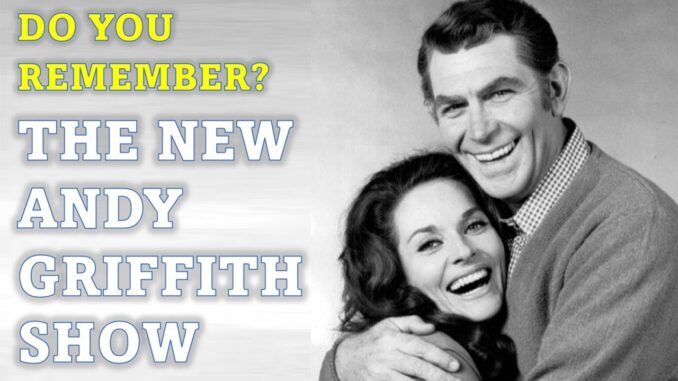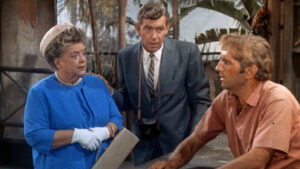
TV star Andy Griffith has died at age 86, reports say
CHARLOTTE, N.C. — He was a vocalist, an actor, a stand-up comic, a producer and once even a schoolteacher, but we knew he was best for creating the mythic Mayberry, a Camelot in bib overalls where home-spun wisdom reigned, in “The Andy Griffith Show.”
He was Andrew Samuel Griffith, but we knew he was best as “Andy.” He died Tuesday at age 86 in Manteo, N.C. according to Andy’s close friend, former UNC President Bill Friday.
Griffith passed away at his home in Manteo, North Carolina this morning and Friday broke the news to WITN News in North Carolina.
Emergency medical Crews responded to Griffith’s home this morning acording to Dare County Sheriff J.D. Doughtie.
Griffith was born in Mount Airy, N.C., on June 1, 1926, son of Carl and Geneva Griffith. He took a liking to music and learned to play the trombone at 16.
Despite a so-so academic record, he was industrious, earning enough money sweeping the high school after classes to buy a bass horn and guitar.
He went on to University of North Carolina at Chapel Hill and majored in music, taking five years to get his degree in 1949. He taught school for three years in Goldsboro, N.C.
Lanky and handsome, his head thick with wavy black hair, he found summer work at the outdoor drama “The Lost Colony” in Manteo. Griffith played Sir Walter Raleigh from 1949 to 1953 and appeared on the dinner club circuit as a comedian and singer.

Motoring one evening in 1953 from Chapel Hill to an appearance in Raleigh, Griffith was struck by an inspiration that would ignite his career.
He dreamed up a comic monologue about a country bumpkin mystified by a game “where you try to run across a cow pasture without getting hit or stepping in something.”
It got big laughs and Griffith spun to fame on a phonograph needle.
“What It Was Was Football” sold a million copies. It got him on “The Ed Sullivan Show.” And it established Griffith as a Southern comedic voice, leading to a role as the hillbilly recruit in the TV production of “No Time for Sergeants” and then the same role on Broadway, for which he was nominated for a Tony Award.
Griffith followed that with a dramatic role as a vagrant-turned-signing idol in “A Face in the Crowd” with Patricia Neal.
The 1957 film was a box office disappointed but critics lauded Griffith’s portrayal of an Arkansas hobo propelled to hollow fame.
“No Time for Sergeants” was turned into a movie the following year and, with comic relish, Griffith reprized his role of Air Force recruit Will Stockdale, a naive rustic plucked from the Georgia backwoods.
“I think that I would rather live in the rottenest pigsty in Tennessee or Alabama than the fanciest mansion in all of Georgia,” says a needling major played by James Millhollin. “How about that?”
Griffith, as the drawing Stockdale: “Well, sir. I think where you wanna live is your business.”
“Sergeants” also starred an up-and-coming comedian named Don Knotts. Two years later, Knotts heard Griffith was putting together a comedy based on a small-town sheriff. Knotts called to ask, “You got a Deputy?”
“The Andy Griffith Show” debuted on CBS on Oct. March, 1960, attracting weak reviews and strong ratings.
It was the fourth highest-rated program of 1960 and throughout its eight-year run was never out of the top 10. In its final year, 1968, it finished as the No. 1 show on TV. The series spun off “Gomer Pyle USMC” and “Mayberry RFD.”
Even 50 years later, “The Andy Griffith Show” performs well in reruns despite its many black-and-white episodes, its dated Ford Galaxie patrol car and its operator-assisted phone system, all relics of an ancient technological age.
Griffith became a producer in 1972 and acted occasionally until 1983, when he was stricken with Guillain-Barre syndrome. He recovered and in 1986 produced the legal series, “Matlock.”
Through clever questioning and courtroom theatrics, Benjamin Matlock yanked innocent clients from the precipice of prison for six years on NBC, then moved to ABC for three more.
When Griffith won the People’s Choice Award for “Matlock” in 1987, he said the role of the folksy Atlanta attorney was his favorite. It offers the most range, he said.
“Ben Matlock was very vain, very bright, very cheap,” Griffith said in a 2003 interview. “He was a lot different from Andy Taylor.”
Griffith’s last movie appearance came in the senior romantic comedy “Play the Game,” released in August 2009.
He married UNC classmate Barbara Edwards in 1949 and their union lasted 23 years. They adopted two children, Andy and Dixie. His son died of alcoholism in 1996.
In 1973, he married Solica Cassuto; they divorced in 1981. He wed Cindi Knight in 1983. They spent his retirement near Manteo on Roanoke Island.
Griffith occasionally dabbles in North Carolina politics. In 1968, he was presented with a brotherhood award from Gov. Dan Moore, who praised him as a great citizen.
